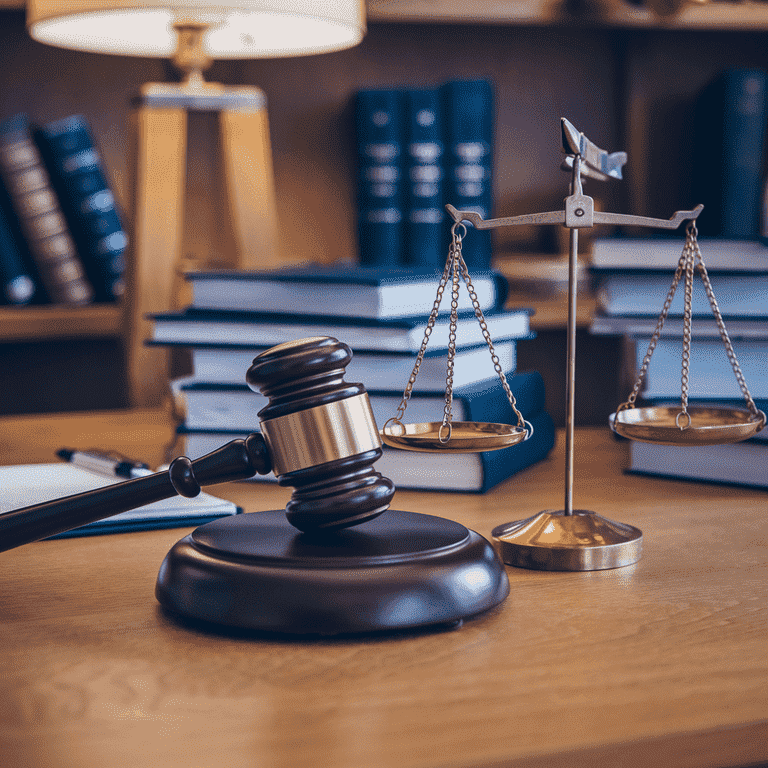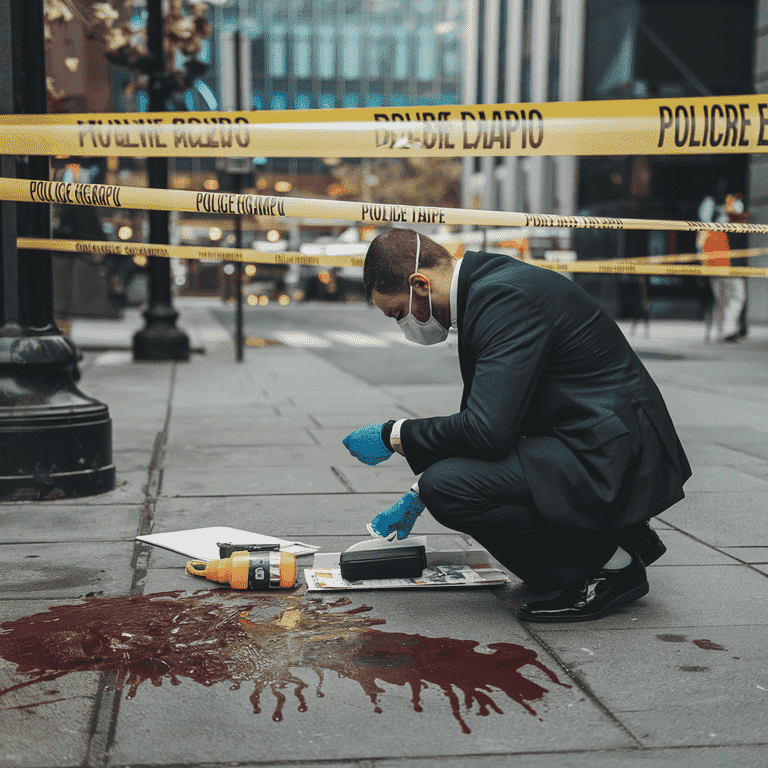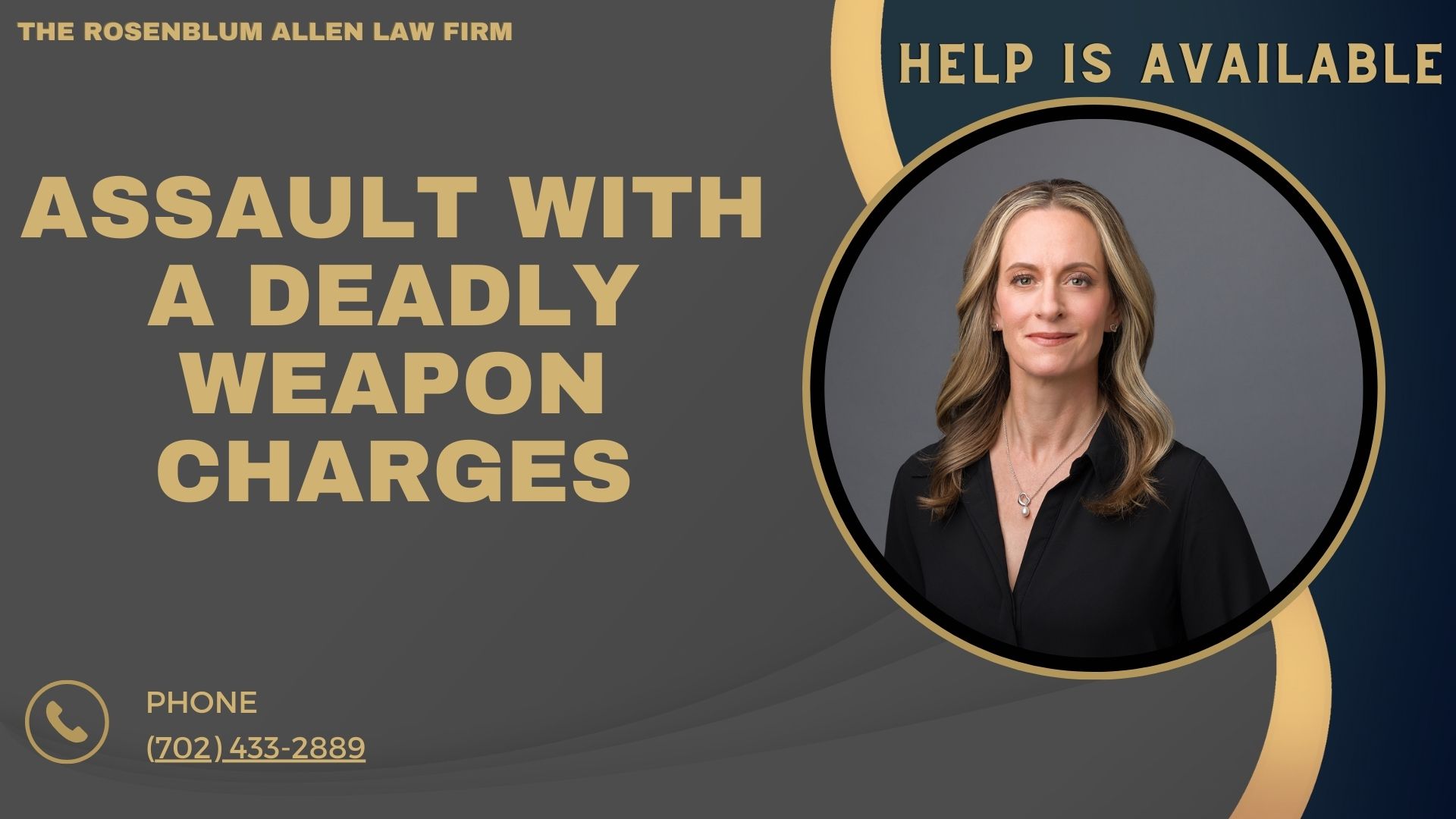Have you ever wondered what exactly constitutes “assault with a deadly weapon”? It’s a term we often hear in crime dramas, but the reality is far more complex and severe. Let’s dive into this critical legal concept and break it down.
Definition of Assault with a Deadly Weapon
Assault with a deadly weapon is no small matter. It’s a serious criminal offense that can have life-altering consequences. But what does it mean?
Legal Elements
To understand this crime, we need to break it down into two key components:
- Assault component: This involves an intentional act that causes another person to fear immediate harmful or offensive contact. It’s not just about physical harm – the fear alone can be enough.
- Deadly weapon component: This is where things get dire. A deadly weapon is any object capable of causing death or serious bodily injury.
Put these together, and you have a recipe for a severe crime. It’s like taking a regular assault and cranking up the danger level to eleven.
Common Examples
Now, you might be thinking, “That sounds pretty straightforward.” But real life is rarely that simple. Let’s look at some common scenarios:
- Knife attacks: Imagine someone threatening another person with a knife. Even if they don’t stab anyone, that’s assault with a deadly weapon.
- Gun-related threats: Pointing a loaded gun at someone, even without firing, falls into this category. It’s all about the potential for harm.
- Vehicle assaults: Believe it or not, a car can be considered a deadly weapon if used to threaten or attempt to harm someone.
These examples show how varied and complex these cases can be. It’s sometimes more clear-cut than you might think.
Deadly Weapons
Now, let’s talk about what counts as a “deadly weapon.” This is where things get a bit tricky.
Weapons Per Se
Some objects are considered weapons by their very nature. These include:
- Firearms: Guns are the classic example. Whether it’s a pistol, rifle, or shotgun, if it’s designed to shoot bullets, it’s a deadly weapon.
- Knives: While kitchen knives have legitimate uses, many are primarily weapons. Think switchblades or combat knives.
- Brass knuckles: These are designed for one purpose only – to cause harm in hand-to-hand combat.
Ordinary Objects as Deadly Weapons
Here’s where it gets interesting. Everyday items can become deadly weapons depending on how they’re used. For example:
- Household items: A frying pan or a lamp might not seem dangerous, but swing them at someone’s head, and suddenly, it’s a different story.
- Tools: A screwdriver or hammer has legitimate uses, but threatening someone with one is dangerous.
- Vehicles: As mentioned earlier, a car can be a deadly weapon if used to try to run someone over.
It’s all about context and intent. An object doesn’t have to be designed as a weapon to be deadly in the wrong hands.

Body Parts as Deadly Weapons
Believe it or not, your own body can sometimes be considered a deadly weapon. It sounds like something out of a kung fu movie, but it’s a fundamental legal concept.
- Hands and feet: In some cases, fists or feet can be deemed deadly weapons, especially if the attacker has special training.
- Teeth: Yes, even your chompers can be considered deadly weapons in certain situations. Think of severe biting incidents.
- Debate on classification: There’s an ongoing discussion in legal circles about when body parts should be classified as deadly weapons. It’s not always clear-cut.
It’s wild to think that your own body could be legally considered a weapon. But in the eyes of the law, anything that can cause serious harm could potentially fit the bill.
Legal Consequences
Now, let’s get down to the nitty-gritty. What happens if someone is charged with assault with a deadly weapon?
Classification
First things first: Is it a felony or a misdemeanor? Well, it depends.
- Felony: In most cases, assault with a deadly weapon is charged as a felony. This is the big league of criminal charges.
- Misdemeanor: Sometimes, it might be charged as a misdemeanor under certain circumstances. But don’t let that fool you – it’s still serious.
The classification can significantly impact a person’s life, affecting everything from job prospects to voting rights.
Aggravating Factors
Some things can make the situation even worse:
- Victim’s status: Assaulting certain people (like police officers or elderly individuals) can lead to enhanced penalties.
- The extent of injury: The more severe the injury, the harsher the potential punishment.
- Prior convictions: A history of violent crimes can seriously amp up the consequences.
It’s like a legal version of adding insult to injury – these factors can turn a bad situation into a much worse one.

Defenses
If someone is charged with this crime, what can they do? There are several possible defenses.
Common Defenses
Here are some of the most frequently used defenses:
- Misidentification: “It wasn’t me!” Sometimes, it’s a case of mistaken identity.
- Self-defense: If someone reasonably believed they were in danger, they might have a valid defense.
- Accident: Sometimes, what looks like an intentional act is just a terrible accident.
These defenses can be complex, and their success often depends on the case’s specific details.
Legal Strategies
Defending against these charges isn’t just about what happened – it’s also about legal tactics:
- Challenging evidence: A good defense often involves poking holes in the prosecution’s case.
- Negotiating plea deals: Sometimes, the best strategy is to negotiate for reduced charges or penalties.
Remember, every case is unique. What works in one situation might not work in another. That’s why having a skilled defense attorney is so crucial.
Legal Proceedings
Have you ever wondered what happens after someone’s charged with assault with a deadly weapon? Let’s walk through the process. It’s not quite like what you see on TV, but it’s just as intense.

Investigation Process
Before anyone steps foot in a courtroom, there’s a lot of behind-the-scenes work:
- Evidence collection: This is where the police do their thing. They’re looking for:
- Weapons
- Fingerprints
- DNA evidence
- Surveillance footage
- Witness statements: Remember, eyewitness accounts can make or break a case. Investigators will be busy interviewing anyone who saw what happened.
It’s like putting together a puzzle but with much higher stakes. Each piece of evidence could be crucial in determining someone’s fate.
Court Process
Now, let’s step into the courtroom. Here’s what typically happens:
- Arraignment is the defendant’s first court appearance. They hear the charges and enter a plea. It’s usually quick, but it sets the stage for everything that follows.
- Trial: If the case goes to trial, both sides present their evidence and arguments. It’s sometimes more dramatic than in the movies but undoubtedly tense. The prosecution has to prove guilt beyond a reasonable doubt.
- Sentencing: The judge decides on the punishment if there’s a guilty verdict. This is where those aggravating factors we talked about earlier come into play.
Each step can be nerve-wracking for everyone involved. The process can take months or even years to complete.
Importance of Legal Representation
Now, let’s talk about why having a good lawyer is crucial. It’s not just about having someone to speak for you in court.
Role of a Defense Attorney
A skilled defense attorney wears many hats:
- Case evaluation: They’ll examine all the evidence and give you a realistic picture of your situation.
- Defense strategy development: Based on the specifics of your case, they’ll craft a strategy to give you the best possible outcome.
- Negotiation with prosecutors: Sometimes, the best defense is a good negotiation. A skilled attorney can reduce or even drop charges.
Think of a defense attorney as your guide through the legal maze. They know the shortcuts, the dead ends, and the best routes to take.
Assault with a deadly weapon is no laughing matter. It’s a severe offense that can change lives in an instant. We’ve seen how everyday objects can become lethal weapons in the wrong hands and how even our body parts can sometimes be considered weapons. Who knew your fists could be as legally dangerous as a knife?

Remember, the legal system isn’t just about punishment. It’s about justice, protection, and, hopefully, rehabilitation. Whether you’re accused, a victim, or a concerned citizen, understanding these laws helps us navigate our society more safely and responsibly.
If there’s one thing to remember, it’s this: the law is complex, but its goal is simple – to keep us all safe. By understanding it better, we can all contribute to a safer, more just society. Stay informed, stay safe, and remember – in the eyes of the law, even a pillow could be a deadly weapon if used with ill intent. It’s not about the object but how it’s used. Let’s all use our knowledge responsibly!

Frequently Asked Questions
Can I be charged with assault with a deadly weapon if I didn't hurt anyone?
Yes, you can. The crime is about the threat of harm, not necessarily the actual infliction of injury. If you used or brandished a deadly weapon in a way that made someone fear immediate harm, you could be charged.
What's the difference between assault with a deadly weapon and aggravated assault?
While these terms are sometimes used interchangeably, they can have different meanings depending on the jurisdiction. Generally, assault with a deadly weapon is a specific type of aggravated assault. Aggravated assault is a broader term that can include other factors like intent to commit a felony or assault against specific protected individuals.
If I'm convicted, will I lose my right to own firearms?
In most cases, yes. A felony conviction for assault with a deadly weapon typically results in the loss of gun ownership rights. This restriction can be permanent in some jurisdictions.
Can I claim self-defense if I used excessive force?
Self-defense claims can be complicated when excessive force is involved. While you have the right to defend yourself, force must generally be proportional to the threat, and using excessive force could undermine a self-defense claim.
How long does a conviction stay on my record?
A conviction for assault with a deadly weapon typically stays on your record permanently unless you’re able to get it expunged or sealed. The possibility and process for this vary by state and circumstances.
What if the "deadly weapon" I used was fake, like a toy gun?
Even if the weapon was fake, you could still be charged if the victim reasonably believed it was real and feared for their safety. Some jurisdictions have specific laws addressing the use of imitation weapons in crimes.
Can I be charged with this offense if I was under the influence of drugs or alcohol?
Yes, you can. Being under the influence is not typically a defense to this charge. It might be considered an aggravating factor in some cases.
What's the difference between assault and battery in this context?
Assault generally refers to the threat of harm, while battery involves actual physical contact. Assault with a deadly weapon doesn’t necessarily require physical contact, just the threat of it with a deadly weapon.
Can I travel internationally with this on my record?
A conviction can significantly impact your ability to travel internationally. Many countries restrict entry for individuals with violent crime convictions. It’s crucial to check the specific entry requirements for any country you plan to visit.
How might a conviction affect my employment prospects?
A conviction can have profound implications for employment. Many employers conduct background checks, and a violent felony conviction could disqualify you from specific jobs, especially those involving security, childcare, or positions of trust.

Additional Resources for You
Our lead attorney, Molly Rosenblum, Esq, has created a multitude of resources to assist you in your time of need. Explore these informative links to help you understand your situation better:
- Criminal Defense Attorneys: Learn more about defending against criminal charges.
- Felonies in Nevada: Get informed about the classification and consequences of felonies in Nevada.
- Attorneys Answer Your Questions About Miranda Rights: Understand your constitutional rights during an arrest.
- Firearms Defense Lawyers: Find help with firearm-related charges.
- Theft Defense Lawyers: Obtain representation for theft charges.
- Winning Felony Cases in Nevada: Discover strategies for successfully defending against felony charges.
- Drug Possession Defense Lawyer: Learn how to navigate drug possession charges.
- Marijuana Possession Questions? We’ve Got Answers: Understand the laws surrounding marijuana possession in Las Vegas.
- Juvenile Defense Lawyers: Find guidance for juvenile charges.
- Juvenile Charges: Get Legal Advice: Learn about the legal process for juvenile charges.
- Charged with Solicitation? We Can Help: Understand your options if you’re charged with solicitation.
- Nevada Traffic Tickets: Find help for traffic violation tickets.
Remember, when you click these links, you will stay on the same tab. It’s our goal to provide you with the information and guidance you need in these challenging times.

Offsite Resources for You
Here are some other offsite resources you may find useful:
Nevada Revised Statutes: This is the official site of the Nevada Legislature, where you can find detailed information about state laws and statutes.
Clark County Courts: Get information related to court cases, jury duty, legal resources, court calendars, and more.
Nevada Department of Public Safety: This site provides resources related to public safety, including crime and traffic safety reports.
U.S. Department of Justice: The DOJ’s official website offers a wealth of information on federal laws and procedures, news, and how to report a crime.
American Civil Liberties Union of Nevada: The ACLU provides resources on civil rights and legal issues, including how to get legal help.
Legal Aid Center of Southern Nevada: This nonprofit organization provides free legal education and assistance to individuals and families in Southern Nevada.
Nevada Legal Services: A nonprofit organization providing free legal services to low income Nevadans.
Why You Haven't Already Hired a Defense Attorney to Help You
Watch this short video to take the next big step toward defending your rights against your felony charge.

A Special Message from Our Lead Attorney

Molly Rosenblum
Dear Reader,
Thank you for taking the time to read through these resources. As an attorney, I understand that navigating the legal system can be confusing and intimidating.
That’s why I’ve dedicated my practice to representing my clients and ensuring they have the information they need to feel empowered throughout the process.
I want you to know that you’re not alone in this. My team at The Rosenblum Allen Law Firm and I are here to help.
If you have more questions or need legal advice, please don’t hesitate to reach out.
Please schedule a free consultation by calling (702) 433-2889.
During this call, we can discuss your case in detail, answer any questions you might have, and outline the next best steps for your situation.
Remember, it’s our job to shoulder the legal burden so you can focus on what matters most – your life and your future.
Thank you once again for your time, and I look forward to the opportunity to assist you.
Sincerely,
Molly Rosenblum, Esq.





